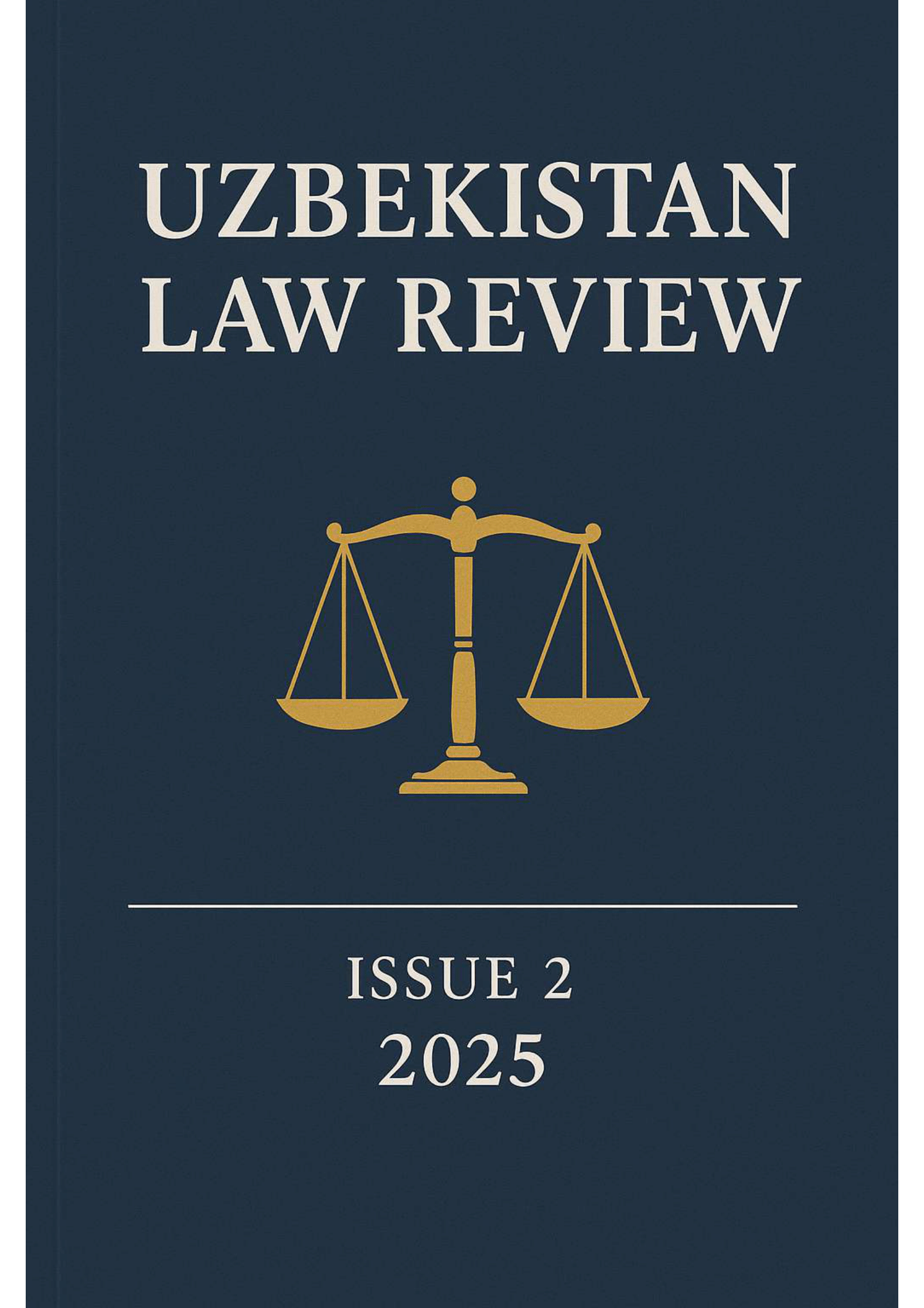BALANCING INNOVATION AND REGULATION: A NEW LEGAL APPROACH TO DIGITAL FINANCIAL SERVICES
Keywords:
Digital finance, regulatory sandboxes, fintech regulation, innovation policy, financial stability, adaptive regulation, RegTechAbstract
This article examines the challenge of balancing innovation and regulation in digital financial services and proposes a new legal approach to address this tension. Through analysis of contemporary regulatory frameworks, the study explores innovative mechanisms including regulatory sandboxes, principle-based regulation, risk-based supervision, and collaborative governance models. The research demonstrates how traditional regulatory approaches often fail to accommodate the rapid pace of technological change in financial services, necessitating more adaptive and flexible frameworks. Key findings highlight the effectiveness of regulatory sandboxes in fostering controlled innovation, the benefits of hybrid principle-rule based approaches, and the importance of proportionate regulation tailored to firm size and risk profiles. The article also examines the role of regulatory technology (RegTech) and supervisory technology (SupTech) in enhancing regulatory efficiency while promoting innovation. The proposed legal approach emphasizes adaptability, stakeholder collaboration, and international cooperation as essential elements for successfully regulating digital financial services while maintaining consumer protection and financial stability.
Downloads
References
1. Ahern, D. (2018). Regulatory arbitrage in a proportionate regulatory framework: Challenges and opportunities in financial services regulation.
2. Alaassar, A., Mention, A. L., & Aas, T. H. (2020). Exploring how fintech startups use regulatory sandboxes. Journal of Banking and Financial Technology, 4(2), 145-162.
3. Armour, J., Awrey, D., Davies, P., Enriques, L., Gordon, J. N., Mayer, C., & Payne, J. (2019). Principles of financial regulation. Oxford University Press.
4. Arner, D. W., Barberis, J., & Buckley, R. P. (2017). FinTech and RegTech in a nutshell, and the future in a sandbox. CFA Institute Research Foundation, 3(4), 1-20.
5. Arner, D. W., Barberis, J., Walker, J., Buckley, R. P., Dahdal, A. M., & Zetzsche, D. A. (2018). Digital identity in financial services: Legal and regulatory challenges. University of New South Wales Law Journal, 41(2), 518-562.
6. Avgouleas, E. (2016). The political economy of financial regulation reform: Why regulation and supervision still matter in the post-crisis world. International Review of Law and Economics, 46, 6-18.
7. Baldwin, R., & Black, J. (2008). Really responsive regulation. Modern Law Review, 71(1), 59-94.
8. Basel Committee on Banking Supervision. (2018). Sound practices: Implications of fintech developments for banks and bank supervisors. Bank for International Settlements.
9. Basel Committee on Banking Supervision. (2020). Guidelines on sound management of risks related to money laundering and financing of terrorism. Bank for International Settlements.
10. Borgogno, O., & Colangelo, G. (2020). Paving the way for an European open banking standard: The second payment services directive and beyond. European Law Review, 45(3), 299-322.
11. Brummer, C. (2020). Fintech law and policy: Cases and materials. Edward Elgar Publishing.
12. Brummer, C., & Yadav, Y. (2019). Fintech and the innovation trilemma. Georgetown Law Journal, 107(2), 235-307.
13. Buckley, R. P., Arner, D. W., Zetzsche, D. A., & Weber, R. H. (2020). The road to RegTech: Building a more efficient financial system. Journal of Financial Transformation, 51, 37-45.
14. Competition and Markets Authority (CMA). (2016). Retail banking market investigation: Final report. UK Government.
15. Enriques, L. (2017). The regulatory response to the fintech revolution. Harvard Business Law Review, 7(2), 78-102.
16. European Banking Authority (EBA). (2019). Guidelines on ICT and security risk management (EBA/GL/2019/04). European Banking Authority.
17. European Banking Authority (EBA). (2019). Report on the use of RegTech solutions. European Banking Authority.
18. European Union. (2018). FinTech Action Plan: For a more competitive and innovative European financial sector. European Commission.
19. European Union. (2020). Regulation (EU) 2020/1503 on European crowdfunding service providers for business. Official Journal of the European Union.
20. European Union. (2021). Investment Firms Regulation (IFR) and Investment Firms Directive (IFD). Official Journal of the European Union.
21. Financial Conduct Authority (FCA). (2015). Regulatory sandbox framework. Financial Conduct Authority.
22. Financial Conduct Authority (FCA). (2016). FCA Handbook: Principles for Businesses. Financial Conduct Authority.
23. Financial Conduct Authority (FCA). (2019). Policy Statement PS19/14: Loan-based crowdfunding platforms and segregation of client funds. Financial Conduct Authority.
24. Financial Stability Board (FSB). (2020). Regulatory and supervisory issues relating to outsourcing and third-party relationships. Financial Stability Board.
25. Ford, C. (2010). Principles-based securities regulation in the wake of the global financial crisis. McGill Law Journal, 55(2), 257-307.
26. General Data Protection Regulation (GDPR). (2016). Regulation (EU) 2016/679. Official Journal of the European Union.
27. Global Financial Innovation Network (GFIN). (2019). GFIN cross-border testing pilot. Bank of England.
28. Kaminski, M., & Malgieri, G. (2021). Algorithmic impact assessments under the GDPR: Producing multi-layered explanations. International Data Privacy Law, 11(2), 125-144.
29. Monetary Authority of Singapore (MAS). (2022). FinTech Regulatory Sandbox under the Financial Services and Markets Act 2022. Monetary Authority of Singapore.
30. Payment Services Directive 2 (PSD2). (2015). Directive (EU) 2015/2366. Official Journal of the European Union.
31. Singapore. (2019). Payment Services Act 2019. Government of Singapore.
32. U.S. Commodity Futures Trading Commission (CFTC). (2020). Principles for regulation of cryptocurrencies. CFTC Guidance.
33. U.S. Securities and Exchange Commission (SEC). Regulation Crowdfunding. Code of Federal Regulations, Title 17.
34. Van Loo, R. (2018). Making innovation more competitive: The case of fintech. UCLA Law Review, 65(1), 232-279.
35. Zachariadis, M., & Ozcan, P. (2017). The API economy and digital transformation in financial services: The case of open banking. Communications of the Association for Information Systems, 41(1), 7.
36. Zetzsche, D. A., Arner, D. W., Buckley, R. P., & Weber, R. H. (2020). The future of data-driven finance and RegTech: Lessons from EU Big Bang 2. University of Pennsylvania Journal of Business Law, 23(1), 25-71.
37. Zetzsche, D. A., Buckley, R. P., Arner, D. W., & Barberis, J. N. (2021). Regulating a revolution: From regulatory sandboxes to smart regulation. Fordham Journal of Corporate and Financial Law, 23(1), 31-103.







